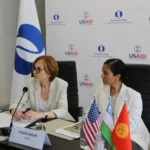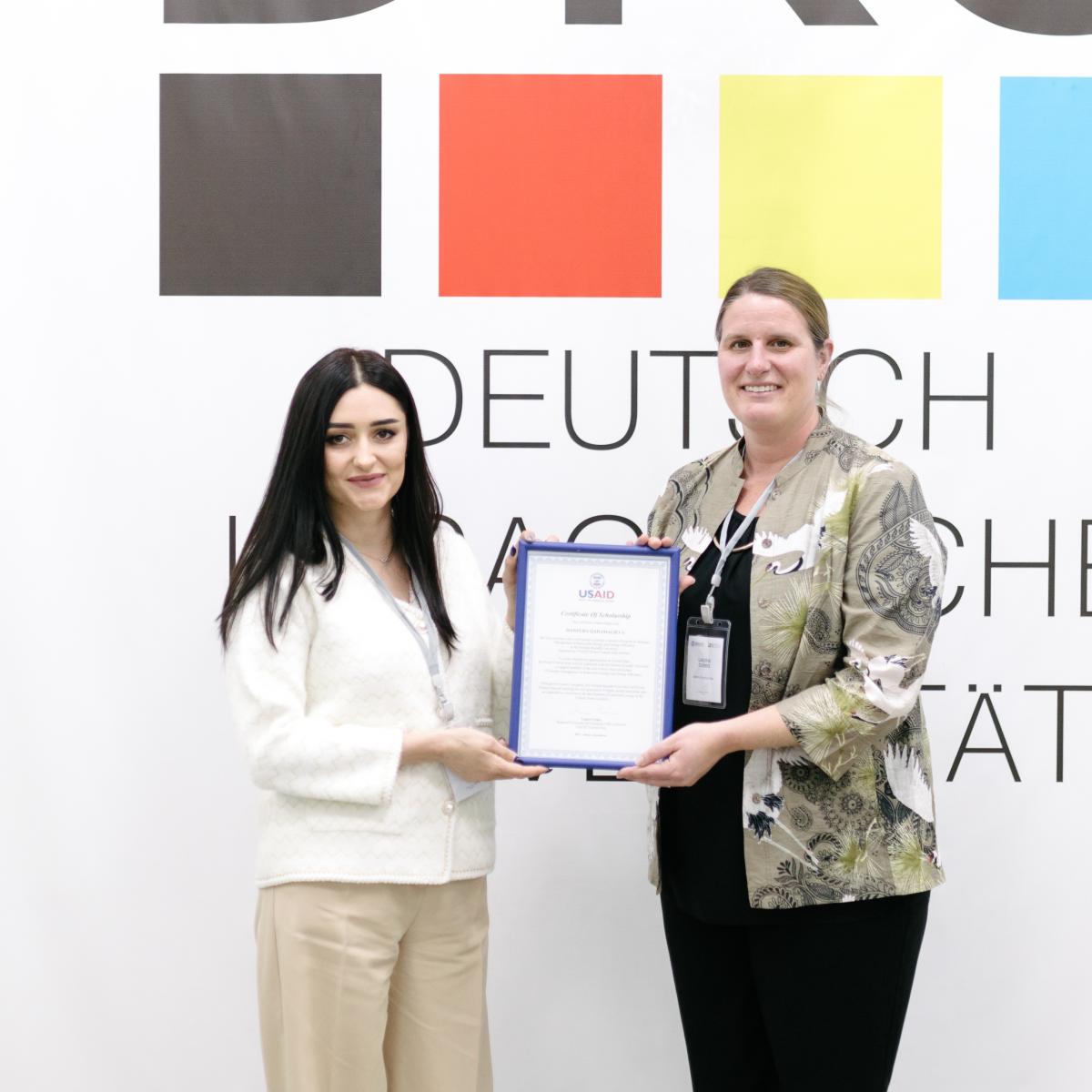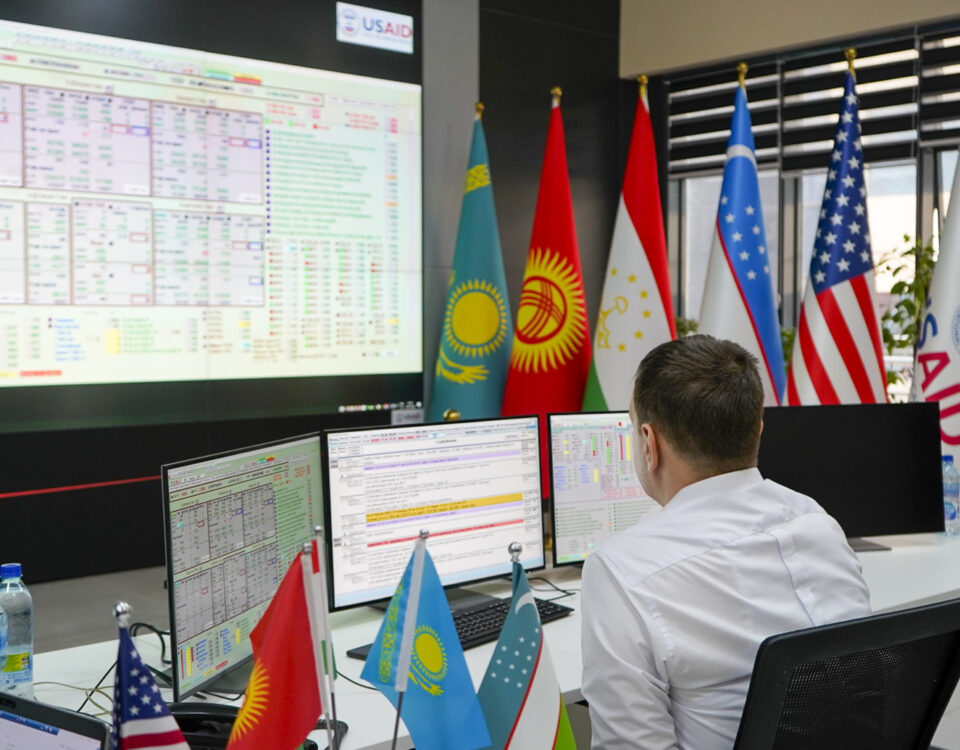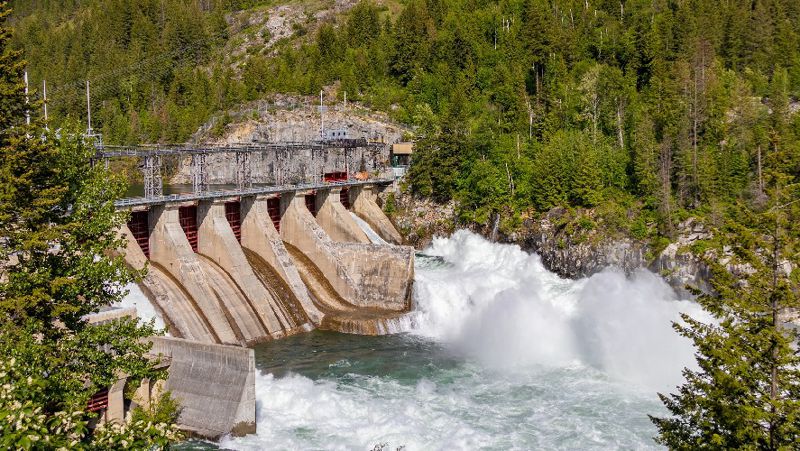
Press release – USAID, EBRD Sign MOU On Central Asia Partnership For A Low Carbon Future

New generation of Kazakh power engineers pave the way for a sustainable energy transition
Electricity is Power: USAID is Helping a Tajik Graduate Boost Her Community
Known for its surreal natural beauty, the GBAO region in eastern Tajikistan is highly remote and mountainous. Most communities are off grid and face constant interruptions in electricity, heat, and power supplies- barriers to communal growth and economic prosperity.

Following the dissolution of the Soviet Union, Tajikistan faced an energy crisis because of its heavy reliance on diesel fuel imported from Russia. Following the end of the civil war (1991-1997), Manzura can recall the tremendous social and economic impacts brought by the region’s steady energy sector development.
Today, Manzura is studying in Almaty, Kazakhstan, at the Kazakh-German University (DKU) on a full scholarship provided by the United States Agency for International Development (USAID)’s Power Central Asia (PCA) Activity. “I am in the second year of the Strategic Management in Renewable Energy and Energy Efficiency master’s program, working on advancing my knowledge to improve my community’s quality of life,” explains Manzura. “It is critical for me to understand how my region is integrated into national strategies, and how in turn these country-wide plans fit into and are affected by the world.”
One of the USAID Power Central Asia Activity’s objectives is to create a new generation of highly qualified energy specialists to help countries in the region meet their ambitious low-carbon energy targets in the coming years. USAID is working with universities to introduce new disciplines and programs and help prepare future-ready graduates with practical knowledge and skills that can be easily applied in real life.
“This master’s program is perfect because it combines technical knowledge of renewable energy with practical experience—and even management,” Manzura explained. “Other universities in Tajikistan offer courses and provide students with the basic information on renewable energy, but none [of them] provide this level of detail and practicality in their curriculum.”
 In 2019, after 10 years studying and working abroad, Manzura returned home and witnessed Khorugh’s incredible transformation with the provision of basic access to secure supplies of heat and electricity. A new internationally recognized university campus operated at full capacity, an equipped hospital offered patients comprehensive medical services, and local businesses prospered- all of which was not possible a decade before. Even now, Manzura continues to feel surprised how the simple provision of electricity has made her community’s hopes and dreams a reality and brought real prosperity to Khorugh and the GBAO region.
In 2019, after 10 years studying and working abroad, Manzura returned home and witnessed Khorugh’s incredible transformation with the provision of basic access to secure supplies of heat and electricity. A new internationally recognized university campus operated at full capacity, an equipped hospital offered patients comprehensive medical services, and local businesses prospered- all of which was not possible a decade before. Even now, Manzura continues to feel surprised how the simple provision of electricity has made her community’s hopes and dreams a reality and brought real prosperity to Khorugh and the GBAO region.That same year (2019), Manzura joined Pamir Energy, a local energy utility company in Khorugh. Pamir Energy’s goal is ambitious- to bring light and warmth to every home in the Badakhshan region by providing clean, reliable, and affordable electricity. Working 2.5 years at this company gave Manzura an appreciation of the incredibly hard work required to transform the region, and committed herself to same ethics of hard work, faith, and action.
To parallel its partnership with DKU, USAID is working with regional partners to find lasting solutions to the socio-economic and political issues blocking women from greater participation in the energy sector. In August 2022, USAID co-organized with the Women Energy Association the first regional Women in Energy conference, held in the Kyrgyz Republic, to discuss these issues with women currently facing bias in the energy sector. When the program first launched, PCA supported a Renewable Energy trip for scholars and other students and professionals from the region who were interested. They traveled from around Kazakhstan to visit solar, wind, and hydropower plants, meet with management and engineers, and see how clean energy projects come to life.
Through this master’s degree program, launched in September 2021, USAID is supporting 16 scholars from Kazakhstan, the Kyrgyz Republic, Tajikistan, Turkmenistan, Uzbekistan, and Afghanistan. Manzura and fellow students are about to complete their master’s degrees and are excited for real opportunities to contribute to the further development of their communities. Manzura is confident that her skills will only help the Government of Tajikistan and Pamir Energy as they work to bring light, power, and prosperity to these remote and off-grid communities. By providing a platform for specialists throughout the region to exchange ideas, USAID will support improved cross-border collaboration and cooperation, all of which is necessary to create a regional energy market to help Central Asia thrive economically and provide power to its people.




